Are you looking for the best types of products to stock in your cereal business in Kenya?
A cereals business is one most profitable ventures you can start in major towns of Kenya. According to a 2022 study 1, cereal traders in key markets cereals and grains markets of Mombasa, Nairobi, Nakuru, Eldoret, Kisumu, and Nyeri, can make up to 40%. However, to enjoy such returns you must focus on the fast-moving and most profitable types of cereal in Kenya.
What are Fast Moving Cereals in Kenya?
Why stock your business with fast-moving cereals? Accoring to food traders and buyers, fast moving cereal products have the following benefits.
- Nutritious foods providing your customers with good health and immunity.
- High market demand or among the common staple foods in Kenya such as maize.
- Very profitable to trade in and fast moving ensuring no delays of your cash as working capital.
- Affordable or cheap to large number of individual and institutional customers like schools.
- Fast cooking saving time and fuel for both the Urban and rural consumers.
Best Types of Cereals in Kenya
Having understood the benefits of fast-moving cereals, which ones should you grow or sell in Kenya? In this list, we will give you a list of the most profitable cereals, grains, and legumes to supply in this market. The most profitable cereals and cereals products to grow or sell in Kenya are;
Read Next: How Profitable is Cereals Business in Kenya?
Dry Maize
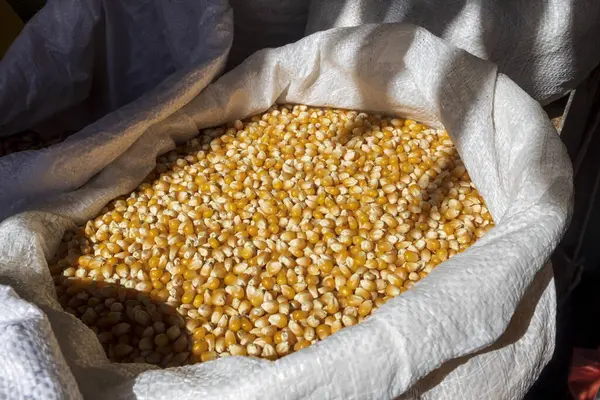
Dry maize is the most important staple food in Kenya. It has a consistently high demand nationwide from January to December. This makes it a reliable option for sellers.
Each household in Kenya or an institution such as a boarding school eats ugali or githeri almost daily. According to studies, the per capita consumption of maize in Kenya is between 98–and 103 kg per person per year. This gives an average demand of 8kg of dry maize per month for every Kenyan.
In terms of profits, the average maize prices in Kenya are highly volatile. Major markets in Nairobi like Nyamakima source their maize through imports from Uganda and Tanzania to meet excess demand.
Kenya consumers have no preference for any maize variety. As a trader, your best maize buyers are local millers, schools, or individual consumers.
The table below details the best types of maize, their descriptions, wholesale and retail prices per kilogram, and profit margins per kilogram.
| Maize Type/Variety and Description | Wholesale Price (Ksh/kg) | Retail Price (Ksh/kg) | Profit margin (Ksh/kg) |
|---|---|---|---|
| Dry White Maize: Kenya’s staple food, also known as Mahindi (Tanzania) and Corn (US) | 70 | 74 | 4 |
| Yellow Maize: Very popular with farmers for animal feed, especially dairy cows, but not a fast-moving retail product for human consumption. | 70 | 74 | 4 |
| Muthokoi (De-husked) Maize: A popular alternative to regular dried maize, often cooked with beans or other legumes. | 102 | 108 | 6 |
| Popcorn: Mostly imported from South Africa, very popular in Kenya. | 210 | 230 | 20 |
Beans
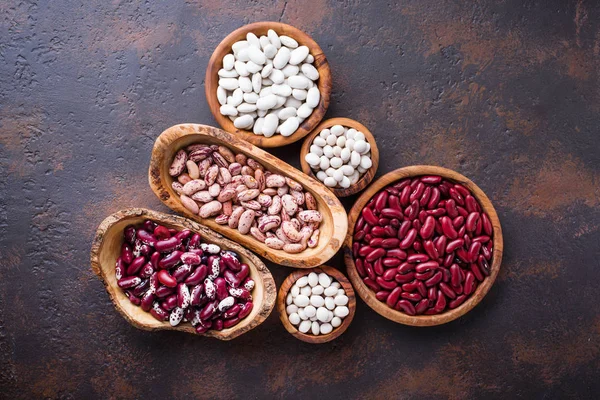
Dry beans are the cheapest source of proteins in Kenya. They are often consumed as githeri a simple recipe of boiled maize and beans. Beans stew is also a common dish with chapati, ugali or boiled rice.
There are many bean varieties and types available across Kenya. the table below is comprehensive price list for various bean varieties in Kenya, Uganda, Rwanda, Tanzania, Burundi, South Sudan, Malawi, Zambia, Zimbabwe, Ethiopia, the USA, and Turkey. It details retail and wholesale prices in Kenyan shillings and US dollars, sourced from the Betta Grain, Kenya Ministry of Agriculture and Farmgain Africa among others.
Nairobi the largest beans market in the region sources its beans from various regions, including Meru, Narok, and Taita Taveta, as well as imports from Uganda and Tanzania.
| Bean Type & Description | Wholesale Price (KSh/kg) | Retail Price (KSh/kg) | Profit Margin (KSh/kg) |
|---|---|---|---|
| Yellow Beans: Greenish bean, also known as Kathika in Kenya. It does not give gas, lacking in colour when cooked. | 150 | 160 | 10 |
| Mwitemania; Cream bean with black strips, popular for Githeri, very popular in Western Kenya. | 106 | 110 | 4 |
| Nyayo Beans: Long red speckled bean, also known as Nambale, NABE 19, NABE 4, K132 (Uganda). | 180 | 190 | 10 |
| Saitoti Beans: Medium red mottled bean, also known as NABE-17 (Uganda) similar to Nyayo beans but shorter. | 180 | 190 | 10 |
| Rosecoco Beans: Pink or brown red speckled/cranberry bean | 180 | 190 | 10 |
| Wairimu Bean: Long red bean famous for rich red colour in Githeri and Madondo. There are two varieties: Wairimu (ordinary) and Wairimu Royal. | Wairimu: 160 Wairimu Royal: 170 | Wairimu: 170 Wairimu Royal: 180 | Wairimu: 10 Wairimu Royal: 10 |
| Kikara/Kakunzu (Sugar Bean): White/cream maroon stripped bean, imported from Uganda. | 140 | 150 | 10 |
| Mwezi-Moja: Purple bean, matures very quickly. | 120 | 130 | 10 |
| White Butter Beans: Also known as Noe White in Kenya. | 280 | 300 | 20 |
| Black Butter Beans: Also known as Noe Black in Kenya. | 280 | 300 | 20 |
| Red Speckled Butter Beans: Also known as Speckled Noe Black in Kenya. | 280 | 300 | 20 |
| Njugu Mawe (Bambara Nut): Considered a legume, not a nut, also known as Tsimbade (Luyha), Monkey Nut. | 280 | 300 | 20 |
| Gachuma/Kachuma Bean “Small, round, deep red kidney bean | 170 | 175 | 5 |
| Katiligi: White or light speckled kidney bean, also known as NABE9C/NABE12C (Uganda) | 170 | 180 | 10 |
| Kituru/Gituru/Canadian Wonder Bean: Deep red, shiny, long kidney bean, also known as Urafiki (Tanzania) | 140 | 150 | 10 |
| White Breakfast Beans: Also known as Nyiragatare, Amabenga (Rwanda). | 170 | 175 | 5 |
| Green Beans (Army Beans): Also known as Nyama Nyama (Kenya) | 180 | 200 | 20 |
Rice
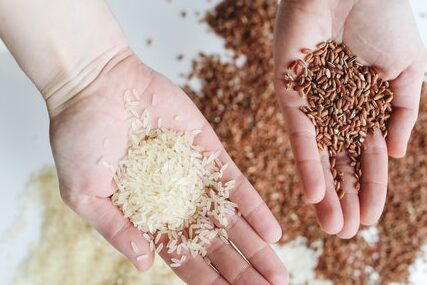
Kenya consumes close to one million metric tons of rice each year.
Rice consumption in Kenya has been steadily increasing, particularly in urban areas. However, a staggering 89% of the rice consumed in Kenya is imported, making it one of the most import-dependent cereals. While some of the local rice is sourced from the Mwea irrigation scheme in Kirinyaga County, much of it is imported from countries like India, Pakistan, and Vietnam.
According to a 2014 research, rice consumers in Kenya prefer the aromatic basmati type. Other rice types you need in your cereal shop are biryani and the pure mwea pishori rice. The table below has detailed about common rice varieties, prices and profits.
| Rice Variety & Description | Wholesale Price (KSh/kg) | Retail Price (KSh/kg) | Profit Margin (KSh/kg) |
|---|---|---|---|
| Kenya Pishori: Aromatic, popular for household consumption among the middle class, prone to market tricks like mixing with cheaper varieties1. | 210 | 220 | 10 |
| Tanzania Kilombero: Very aromatic, strong aroma, pre-cooking sorting is challenging due to tiny white stones, requires attention when cooking as it tends to cake2. | 180 | 190 | 10 |
| Biryani; Non-aromatic, imported, popular for budget-conscious households, separates easily when cooked, prone to being mixed with cheaper varieties3. | 140 | 145 | 5 |
| Sidano: Very similar to Biryani, but with a much more slender/thin grain3. | 140 | 145 | 5 |
| Super Sidano White: Very slim, long-grain, imported from Pakistan and India, Grade 1, popular for making pilau, does not cake easily, non-aromatic4. | 180 | 185 | 5 |
| Super Basmati Parboil: Imported from Pakistan, Grade 1, long-grain milled rice, very popular with the Somali community in Nairobi, does not cake easily, non-aromatic5. | 210 | 220 | 10 |
| 5 Star Basmati: Non-aromatic, imported, popular for low-income households and schools, pocket-friendly price, tends to cake easily6. | 142 | 130 | -12 |
| Thai Parboil: Non-aromatic, imported from Thailand, increased grain size when cooked, popular among low-income households and mothers because of the big grain size for children7. | 150 | 160 | 10 |
| Golden Basmati Parboil: Non-aromatic, imported from India and Pakistan, grain is slightly bigger than Super Basmati parboil, popular pilau rice8. | 160 | 170 | 10 |
| Hola Pishori: Aromatic, found on the East African coast of Kenya and Tanzania, popular in Mombasa and with Tanzanians in Nairobi9. | 180 | 190 | 10 |
| Brown Rice: Aromatic, Kenya Pishori variety, high in fibre, recommended for individuals with diabetes or anyone desiring high-fibre rice10. | 210 | 220 | 10 |
| Broken Rice: Used for making rice porridge and enriching animal feeds11. | 120 | 130 | 10 |
The profit margin is calculated as the difference between the retail price and the wholesale price.
The prices and availability of these rice varieties are subject to change due to prevailing market forces.
Pulses & Legumes (Ndengu, peas, Lentils)
- Greengams, ndengu or mung beans are Kenya’s second most consumed legumes after the common beans. Mung beans are a great accompaniment to rice and chapati stews. unlike other pulses, green grams will not give you heartburn or digestive gas.
- Lentils are the other legume that has a fast-growing demand in the country. Commonly known as Kamande, they resemble tiny beans sometimes with a flattened side. There are various varieties with the red and brown lentils being the most common. Others are black and green varieties. Lentils are very easy to prepare and fast to prepare making them a preferred grain for most urban consumers. In addition, they are very nutritious as they contain high levels of protein and fiber.
- Peas: Another category of profitable cereals to consider for your grain shop is peas. These nutritious products belong to the legume family such as beans, lentils, and green grams. The common ones that have fast sales are; Green Peas (Minji) Cowpeas (Kunde) both the red and white varieties and the Pigeon peas (Baazi)
| Pulse/Legume Variety and Description | Wholesale Price (KSh/kg) | Retail Price (KSh/kg) | Profit Margin (KSh/kg) |
|---|---|---|---|
| White Cow Peas/Kunde: Also known as Black Eyed Peas, these are a popular meal when served with rice or ugali. They are a staple in many households and are known for their creamy texture when cooked1. | 150 | 160 | 10 |
| Red Cow Peas/Kunde: A variety of cowpeas, these are also a popular meal, often served with rice or ugali. They have a slightly reddish hue and are a good source of protein2. | 110 | 120 | 10 |
| Brown Cow Peas/Kunde: Another variety of cowpeas, these are similar to red cowpeas but have a brown colour. They are also commonly served with rice or ugali and are a good source of nutrients3. | 110 | 120 | 10 |
| Pigeon Peas (Mbaazi): A popular alternative to beans, especially when fresh. They are a cheaper alternative to green peas and have a slightly nutty flavour. Pigeon peas are versatile and can be used in various dishes4. | 133 | 145 | 12 |
| Dry Green Peas (Mijii): These are dried green peas, a popular meal, especially during festive seasons. They are a common alternative to more expensive fresh beans and are often used in dishes like Mokimo (Mashed Potatoes and Peas), and vegetable stews5. | 140 | 150 | 10 |
| Chick Peas (Chania): Whole chick peas, a favourite among the Indian, Somali, and Arab communities. They are a good source of potassium and can be added to githeri. Chickpeas tend to take longer to cook and may require presoaking6. | 180 | 190 | 10 |
| Dengu Ordinary: These are the most common type of green grams but are the least popular. The small grains make sorting difficult, and they do not mature evenly, leading to wastage during cooking. This variety is not favoured by customers7. | 140 | 150 | 10 |
| Dengu Polish/Nylon: These green grams are distinguished by their polished appearance, hence the name “Polish” or “Nylon.” This variety is more refined looking compared to the ordinary variety8. | 150 | 160 | 10 |
| Dengu Makueni/Uncle: These green grams have bigger grains than the ordinary and nylon varieties. They have a more dusty appearance, but are known to be tastier and cook more evenly. They are the preferred variety for household consumption and are grown in Makueni, Kitui, and Matuu regions of Kenya9. | 150 | 160 | 10 |
| Dengu Special: A brown grain variety of green grams, popular because they are filling and do not cause heartburn or digestive gas, unlike the ordinary green grams10. | 100 | 120 | 20 |
| Lentils (Kamande): Lentils are imported into Kenya from India and Canada. They are a good source of protein and are used in various dishes. They are a staple in many households for their nutritional value11. | 240 | 260 | 20 |
| Moon Dall Split Dengu: These are split green grams, grown locally in Makueni and Matuu, Kenya. They are popular among the Indian, Somali, and Arab communities, and are used in various dishes like dal12. | 180 | 190 | 10 |
| Chania Dall: This is a split chickpea, also favoured by the Indian, Somali, and Arab communities. It is used in various culinary applications12. | 180 | 190 | 10 |
| Dolichos (Njahi): Also known as lablab beans, these are popular for their high protein content and nutritional value. They are considered an excellent meal for nursing mothers as they are traditionally believed to help with breast milk production13. | 190 | 200 | 10 |
| Njugu Mawe: (Bambara Nut) While technically a nut, it is considered a legume. It is a traditional healthy food, rich in protein, often cooked with maize, and known to boost blood cell production, reducing anaemia14. | 280 | 300 | 20 |
Milled Flours
In addition to the above cereals, cereal businesses in Kenya make extra profits by value addition or food processing. The best choice for the majority is milling grains and selling corn (maize) flour or porridge flour. You will earn an extra of Ksh 5-20 per kg of flour compared to selling cereals. Assorted and fortified flours will fetch you more money than pure ones. The most common uji flours in cereal shops are;
| Milled Flour Type/Variety & Description | Wholesale Price (Ksh/kg) | Retail Price (Ksh/kg) | Profit (Ksh/kg) |
|---|---|---|---|
| Ugali Flour Grade 1 (Sifted): White maize meal, husks removed before milling. Mostly used for making ugali (cornbread). | 105 | 110 | 5 |
| Ugali Flour Grade 2 (Whole Milled/Unsifted): White maize meal, milled whole, high in fibre, a popular healthy option for making ugali. | 105 | 110 | 5 |
| Extra Fine White Maize Meal Flour (Baridii): Used to make Uji (porridge) and Kisra (chapatti/pancake). Cannot be used to make Ugali because it will not cake. | 110 | 120 | 10 |
| Rice Flour: Gluten-free option used for porridge, especially for weaning babies. Also used to make Vibibi (rice and coconut pancake), Vitumbua (rice flour doughnuts), and Mahamri or Mandazi. | 130 | 150 | 20 |
| Pure Wimbi (Millet) Flour: Ground millet grain, mostly used for breakfast porridge. Highly recommended as a maize substitute for ugali, especially for diabetic customers. | 130 | 145 | 15 |
| Wheat Flour (Unsifted Grade 2): High-fibre wheat flour, popular for chapatti and ugali, especially with West Africans and people from the North Rift Valley. | 100 | 110 | 10 |
| Wheat Flour (Sifted Grade 1) Sifted wheat flour. | 100 | 110 | 10 |
| Muhogo (Cassava) Flour: Ground cassava, popular with Congolese, Rwandese, and Zairean nationalities. | 120 | 140 | 20 |
| Mtama (Sorghum) Flour: Mostly used for breakfast porridge. Available in red and white varieties. | 80 | 90 | 10 |
| Wimbi Mix Flour: A mix of millet, sorghum, and cassava flour. Popular with primary and secondary schools as a healthier, cheaper breakfast meal. | 80 | 85 | 5 |
| Sour Flour: A mix of lemon, millet, sorghum, and cassava flour, mixed with acetic acid for a sour taste. Popular with schools for healthier, cheaper porridge. Also known as fermented flour. | 82 | 90 | 8 |
| Mawele (Pearl Millet) Flour: A light green flour used for making porridge and as a fermentation agent in porridge. Also known as fermented flour. | 100 | 120 | 20 |
| Omena (Sardine Fish with Sorghum) Flour: Sardine fish milled with red sorghum grain. Popular in porridge, especially as a rich source of calcium for children, and a source of Omega. | 100 | 110 | 10 |
| Njugu Mtama (Groundnut with Sorghum) Flour: Groundnut milled with sorghum. Used for making porridge for children, rich in magnesium, unsaturated fats, protein, fibre, and minerals. | 100 | 110 | 10 |
| Soya Flour: Highly recommended for porridge. Very high in protein, requires longer cooking time. | 130 | 150 | 20 |
| Terere (Amaranth) Flour: Highly recommended for porridge. | 180 | 190 | 10 |
| Mabuyu (Baobab) Fruit Powder/Flour: Can be used in porridge, popular as a snack/treat in Nairobi and Mombasa. | 180 | 190 | 10 |
| Thabai (Stinging Nettle) Flour: Recommended as an alternative to tea leaves. Nutritional benefits include reduced allergies, antioxidants, anti-inflammatory, anti-microbial, and anti-cancer cell activities. Also used in Mokimo. | 500 | 560 | 60 |
| Nigerian Garri/Gari: Made from fermented, grated, sieved, and roasted cassava tubers. Used to make fine flour. | 200 | 220 | 20 |
Nuts
Nuts are a beneficial cereal product for your grain shop. They are a popular snack and breakfast food. They are also rich in protein and are a popular product among health-conscious customers treating food as medicine. The sources also show that nuts offer a good profit margin
| Nut Type/Variety and Description | Wholesale Price (Ksh/kg) | Retail Price (Ksh/kg) | Profit (Ksh/kg) |
|---|---|---|---|
| Njugu Red Kubwa (Red Groundnuts); Red groundnuts, a popular snack and breakfast item, imported from Malawi. | 260 | 280 | 20 |
| Njugu Red Small (Red Groundnuts); Red groundnuts, a popular snack and breakfast item, imported from Malawi. | 260 | 280 | 20 |
| Njugu White Kubwa (White Big Groundnuts); White groundnuts, favoured for their lower fat content, a popular snack and breakfast item. | 260 | 280 | 20 |
| Njugu White Medium (White Medium Groundnuts); White groundnuts, favoured for their lower fat content, popular with snack vendors. | 260 | 280 | 20 |
| Njugu Mawe (Bambara Nut/Groundnut); Also known as Monkey Nut, a legume rich in protein, traditionally cooked with maize, and known to boost blood cell production. | 280 | 300 | 20 |
Other Grains (Wheat, Millet, Sorghum)
Wheat is the second most consumed cereal after maize in Kenya. Its consumption has been rising by about 4% annually, driven by an expanding market for bakery products. Currently, about 62.4% of Kenya’s wheat needs are met through imports, primarily from countries like Russia, Ukraine, and Australia. Locally, you can source wheat from the best wheat-growing areas like Narok, Nakuru, Uasin Gishu, Trans Nzoia, as well as Laikipia.
In adddition, to wheat, you can also sell various other grainsnd other products for those customers willing to mill their own porridge (Uji) flours. table detailing different types of grains a, their descriptions, wholesale and retail prices per kilogram, and profit margins per kilogram, based on the sources provided:
| Grain/Product & Description | Wholesale Price (Ksh/kg) | Retail Price (Ksh/kg) | Profit (Ksh/kg) |
|---|---|---|---|
| Wheat Grain; (Ngano – Swahili, Qamadi – Somali)Used as a high-fibre rice alternative; stocked in limited volumes due to increasing demand from the Somali community and Rift Valley. | 280 | 280 | 0 |
| Millet Grain (Wimbi, Finger Millet, Ulezi TZ); Grain used for milling breakfast meals (Uji). | 130 | 140 | 10 |
| Red Sorghum Grain (Mtama); Grain used for various purposes. | 70 | 80 | 10 |
| Pearl, Bulrush Millet (Mawele, Uwele TZ); Grain also known as Mawele. | 90 | 100 | 10 |
| Quinoa; Recently stocked due to increasing demand from the Somali and Pokot communities. | Not specified | 3640 (per kg) | Not specified |
| Cassava Chips; Dried cassava chips used for milling blended porridge and ugali flours. | 100 | 120 | 20 |
| Fermented Cassava Chips; Fermented for a tangy flavour, often milled with sorghum and millet for porridge flour, representing a traditional African food preparation method. | 120 | 140 | 20 |
| Simsim / Sesame Seeds; Seeds used for various culinary purposes. | 180 | 190 | 10 |
| Mabuyu (Baobab) Seeds; Used for making a popular street snack in Nairobi and Mombasa; soaked in sugary coloured water and coated with Mabuyu flour. | 65 | 70 | 5 |
How to choose the best products for your Cereal shop
Our list has over 30 profitable cereals in Kenya. However, it is not advisable to stock all of them especially if you are just starting up. Our guide advises you on steps to follow for buying and selling the most profitable ones that are fast-moving without holding your working capital These steps are;
- Conduct a market survey of your target market to know the products with the highest demand. Explore what your rival businesses are stocking and mirror your stock and prices to theirs
- Once you start operating, listen to what your customers are enquiring. Introduce it in small quantities and increase its volumes to match additional orders.
Conclusion
It’s our hope this article teaches you the best cereal products to grow and sell in Kenya. They include various types and varieties of maize, beans, green grains, peas, and lentils. Milled maize and porridge flours fetch higher profits than cereals. In this category, consider selling assorted flours. Millet, sorghum, and maize flours are the most popular in the country. To settle for the most profitable product in your shop, Agcenture advises you to conduct a market survey and mirror your stock to your competitors. Besides, keep introducing new products as customers make orders.
See the video below on the best types of cereals in Kenya to trade in 2024
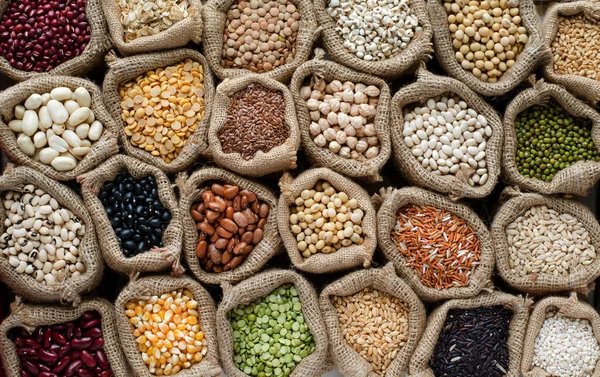


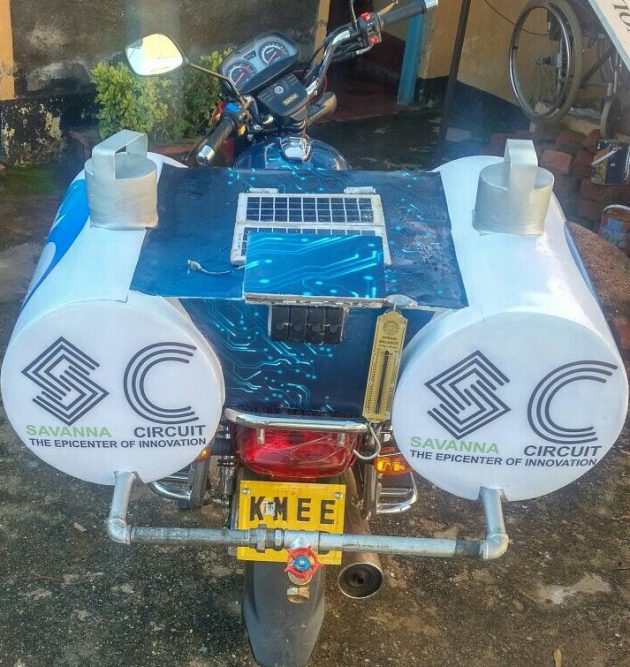
Thanks for this, I am looking forward to start cereal business soonest